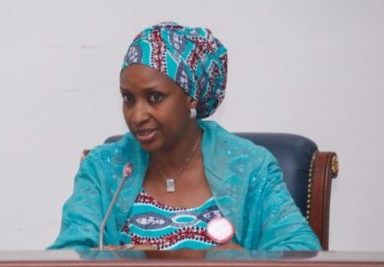
Sometimes it is difficult to explain why we love to create problems in a peaceful atmosphere for no justifiable reason. It becomes unclear why we take ten steps backward after a step forward. Traffic gridlock in Apapa and especially leading to the Lagos Port complex has been a nightmare to commuters, inhabitants and businessmen in the Apapa environment for many years. We wrote, clamoured, and protested with no solution in sight for many years. Whilst traffic was a usual occurrence outside the port complex, congestion was also a major challenge in the port. Whereas the nightmare remained and defiled all solutions, the Navy introduced the call-up system that has worked efficiently to the admiration of many. It has reduced traffic gridlock and congestion inside the port. Many stakeholders, including truck drivers, shippers, commuters, have commended this move by the Navy because it is an acceptable answer to a perennial burden for all in the maritime sector in Nigeria.
It is therefore bewildering that the Nigerian Ports Authority (NPA) would suddenly decide that the best intervention needed now is to upturn the Navy’s truck call-up system without prior notice, and in the process truncating the relatively smooth operations stakeholders have enjoyed in the past weeks. This is alien to modern day business practices where managers and policy makers are more interested in continuous improvement. Rather than improve on an existing efficient system, NPA wants trucks to first go to a shipping company’s loading bay before they are called into the port. Yet the same NPA has not provided a framework for how the trucks would be called into the port. It is only logical that this would lead to traffic jam on the roads because the truck drivers would be eventually condemned to their usual way of occupying the roads. Now the ill-conceived decision by the NPA has created unnecessary and avoidable dispute in the port because no one really benefits from the traffic gridlock and port congestion.
Reports have it that thousands of containers have been trapped inside the Lagos Port Complex Apapa because truck drivers stopped working in protest. What this has done is to create needless congestion in the port in blatant dissonance with the efforts by the government to advance the ease of doing business in the port. An eye witness account suggests that only about 50 trucks were being cleared daily since Monday when the policy was introduced, which is a far cry from at least 1000 trucks that were cleared daily before now. What the NPA has done is to rubbish the efforts of the Presidential Enabling Business Environment Council (PEBEC), which has been at the forefront of creating a friendly business environment at the nation’s ports.
We call on the NPA to immediately reconsider its stance and retract this new directive in the interest of the maritime industry and the overall economy. We do not need agencies of government working at loggerheads in the port; rather what we need is unity of purpose and cooperation amongst all government agencies represented at the port. We wonder what the underlying motive is for NPA to suddenly realise the need for this new directive. Stakeholders are clearly happy with the efficient manner the Navy have implemented the call-up system. We should rather focus our energy on how to advance this system and make it better rather than replacing it with a system that has never worked.
The implications of this latest decision are enormous pointing to the insensitivity in its conception. Some of the imported cargoes that are trapped in the port comprise raw materials and other goods for businessmen that are waiting to recoup profit. The longer the containers stay in the port, the more expenses these businessmen and women incur, and the ultimate impact will eventually reflect on the larger economy. Also port congestion leads to cumbersome port operations and increases the overall cost of doing business.
The continuing reactions to this decision already show that it was not well thought out. The pulse of stakeholders was not felt before the decision was taken, hence the resentment that has greeted it. The unacceptability of this action stares the NPA in the face right now and the only honourable thing to do is to reverse the decision in the best interest of the economy. Going forward, we implore the NPA to always carry stakeholders along before a major directive that can immediately impact the activities and operations of stakeholders in the industry is introduced. It will save us the burden and stress that have trailed the latest decision. It will also save the entire sector unnecessary cost.
Ultimately, we must learn as a nation to make consistent progress in our drive for sustained growth. We must learn not to take ten steps backward after every progressive step. The call-up system by the Navy has been effective and efficient; we do not need the new directive by the Nigerian Ports Authority.
Copyright Ships & Ports Ltd. Permission to use quotations from this article is granted subject to appropriate credit given to www.shipsandports.com.ng as the source.